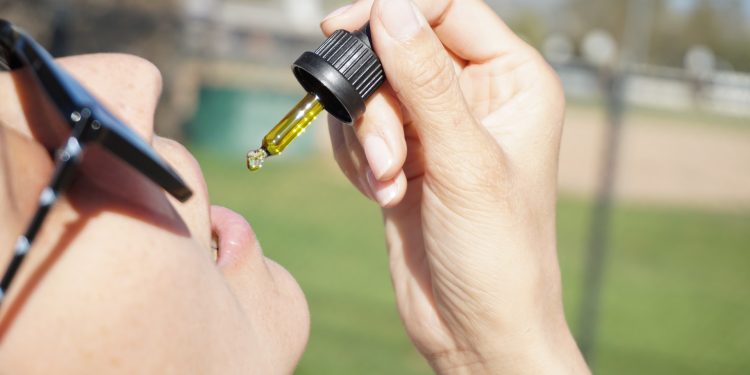In recent years, CBD (cannabidiol) has gained significant attention for its potential therapeutic benefits. From alleviating anxiety and pain to improving sleep quality, CBD seems to offer a wide range of advantages. However, one question that often arises is whether CBD can influence your appetite, making you hungry. In this article, we’ll delve into the complex interaction between CBD and appetite to provide you with a comprehensive understanding of this intriguing topic.
CBD, a natural compound extracted from the hemp plant, has created quite a buzz in the wellness industry. While its potential benefits are widely discussed, its impact on appetite remains a fascinating subject of investigation.
The Endocannabinoid System and Appetite Regulation
To understand how CBD influences hunger, it’s crucial to explore the endocannabinoid system (ECS). This intricate network of receptors plays a pivotal role in regulating various physiological processes, including appetite.
CBD: Non-Psychoactive Compound of Cannabis
Unlike THC (tetrahydrocannabinol), CBD is non-psychoactive, meaning it doesn’t induce the “high” associated with cannabis use. This unique quality sets the stage for its potential to interact with appetite in a distinct manner.
The Hunger Mechanism: Does CBD Stimulate Appetite?
Contrary to the infamous “munchies” induced by THC, CBD doesn’t necessarily lead to an uncontrollable surge in appetite. Instead, its effects on hunger are more nuanced and often depend on various factors.
CBD and Metabolism: Separating Facts from Myths
Claims that CBD directly speeds up metabolism and consequently increases appetite are met with skepticism among experts. While some studies hint at a connection, more research is needed to draw concrete conclusions.
Studies and Research: What Science Tells Us
Scientific exploration into CBD’s influence on appetite is still in its early stages. Some studies suggest that CBD might indirectly affect appetite by addressing underlying issues such as anxiety and pain that can impact eating habits.
Individual Variations: How CBD Affects Appetite Differently
Just as people react differently to medications, CBD’s impact on appetite can vary from person to person. Factors like genetics, overall health, and the presence of any underlying conditions can all contribute.
Combating Nausea and Increasing Appetite: Medical Applications of CBD
In the medical realm, CBD is sometimes used to alleviate nausea and stimulate appetite, particularly in patients undergoing chemotherapy or suffering from certain medical conditions. Its anti-nausea properties might indirectly contribute to increased hunger.
CBD Dosage and Its Impact on Hunger
Finding the right CBD dosage is a crucial aspect of managing its potential effects on appetite. Too much or too little could yield different results, highlighting the importance of personalized dosing.
CBD vs. THC: Contrasting Effects on Appetite
While CBD’s impact on hunger is generally subtle, THC, its psychoactive counterpart, is renowned for triggering intense food cravings. Understanding the differences between these two compounds is key to comprehending their effects on appetite.
A Balanced Approach: Using CBD Wisely
If you’re considering incorporating CBD into your wellness routine, it’s wise to do so with mindfulness. Consulting a healthcare professional and starting with a low dose can help you monitor any changes in appetite.
Myth vs. Reality: Addressing Common Misconceptions
Dispelling myths around CBD and appetite is essential. Misinformation can cloud judgment and prevent individuals from making informed decisions about their health and well-being.
User Experiences: Insights from CBD Consumers
Anecdotal evidence from CBD users indicates a diverse range of experiences. Some report increased appetite, while others claim no noticeable change. These individual stories underscore the complexity of CBD’s influence on hunger.
Practical Tips: Incorporating CBD into Your Lifestyle
If you’re curious about trying CBD for its potential benefits, consider starting with a low dose and gradually increasing it. Pay attention to how your body responds and make adjustments accordingly.
In the realm of CBD and appetite, the relationship is far from straightforward. While some evidence suggests a potential impact, it’s clear that CBD’s effects on hunger are subtle and vary widely among individuals. As you contemplate integrating CBD into your routine, keep in mind that its influence on appetite is just one piece of the puzzle. By staying informed and attuned to your body’s signals, you can make educated choices that support your overall well-being.
FAQs (Frequently Asked Questions)
Does CBD actually give you the “munchies” like THC?
CBD’s influence on appetite is generally much milder than THC’s notorious munchies. It’s unlikely to induce intense food cravings.
Can CBD help with weight management?
While CBD might indirectly affect appetite and metabolism, it’s not a guaranteed solution for weight management. Lifestyle factors still play a crucial role.
Are there any side effects of using CBD for appetite modulation?
CBD is generally well-tolerated, but some users might experience mild side effects such as dry mouth or changes in appetite.
How can I find the right CBD dosage for appetite control?
Finding the optimal CBD dosage requires a personalized approach. Starting with a low dose and gradually increasing it while monitoring your body’s response is recommended.
Is CBD legal to use for appetite-related concerns?
The legality of CBD varies by region. Before using it for appetite-related concerns, ensure you’re aware of the laws in your area.








